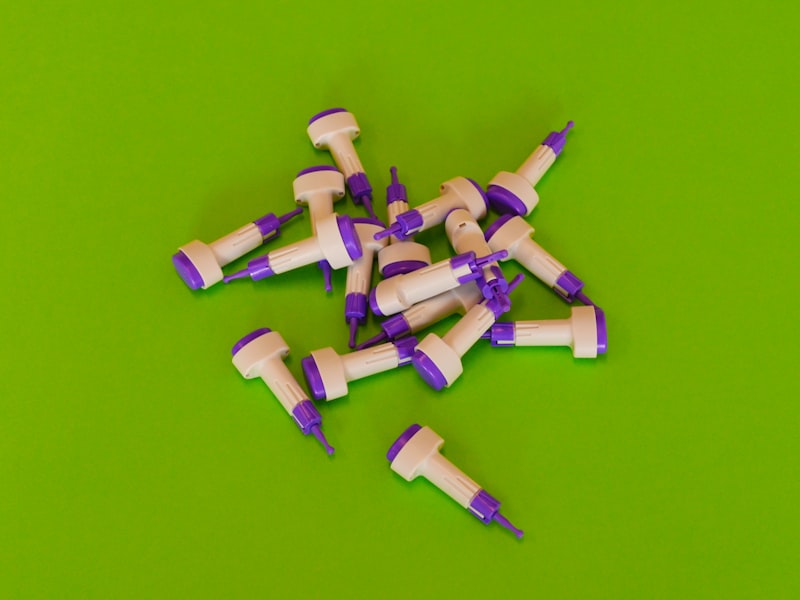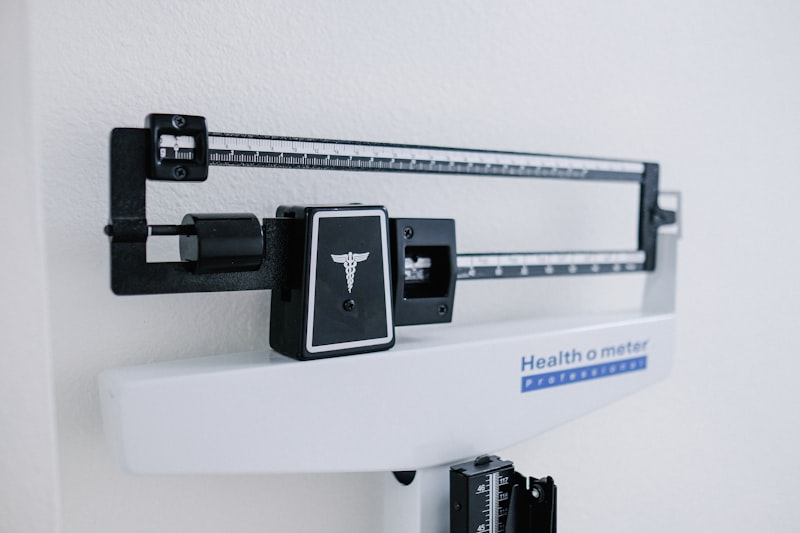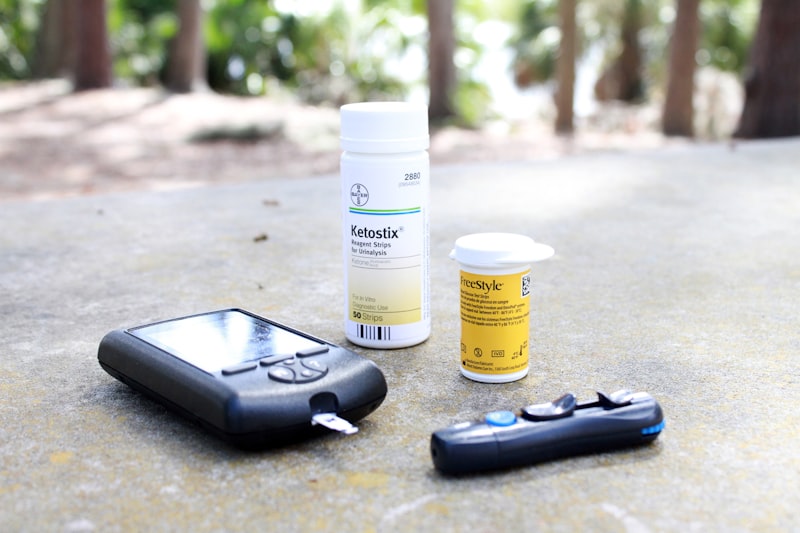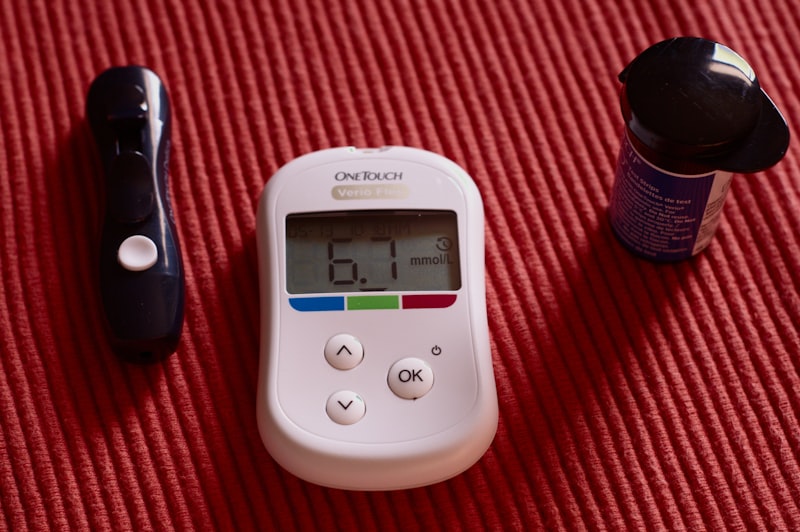Managing diabetes is more than just monitoring blood sugar levels; it’s about adopting a lifestyle that supports overall health. Diet and exercise play pivotal roles in effectively managing diabetes, offering a proactive approach to controlling this condition.
Dietary choices are fundamental. Opting for a balanced diet rich in whole grains, lean proteins, fruits, and vegetables helps stabilize blood sugar levels. These foods release energy slowly, preventing sudden spikes in glucose levels. It’s akin to fueling your body with high-quality, slow-burning fuel rather than a quick burst of energy that fades fast.
Exercise complements diet by improving insulin sensitivity. When muscles are active, they absorb glucose from the bloodstream for energy, reducing blood sugar levels naturally. Regular physical activity, such as brisk walking, cycling, or swimming, not only aids in weight management but also boosts overall well-being. It’s like giving your body a natural tune-up, ensuring everything runs smoothly and efficiently.
Combining diet and exercise creates a powerful synergy in diabetes management. They work hand in hand, each enhancing the effects of the other. Imagine diet as the foundation, providing stable support, while exercise acts as the reinforcement, strengthening the body’s ability to process glucose effectively.


Moreover, these lifestyle changes offer benefits beyond diabetes management. They contribute to heart health, reduce the risk of complications like nerve damage or kidney disease, and enhance overall quality of life. It’s about taking charge of your health proactively, making choices today that pave the way for a healthier tomorrow.
Beyond Insulin: Transforming Diabetes Management with Diet and Exercise
Diet plays a pivotal role in diabetes management. Foods rich in fiber, like whole grains, fruits, and vegetables, can help stabilize blood sugar levels by slowing down digestion and absorption of carbohydrates. On the flip side, refined sugars and processed foods can cause rapid spikes in blood sugar, making them less than ideal choices for those managing diabetes.
Exercise is equally crucial. Physical activity helps your muscles use blood sugar for energy and increases insulin sensitivity, which means your body can use insulin more effectively. This doesn’t mean you have to become a marathon runner overnight—simple activities like walking, swimming, or even gardening can make a significant difference.
The synergy between diet and exercise is where the magic happens. By combining a balanced diet with regular physical activity, individuals with diabetes can potentially reduce their dependence on insulin or other medications. It’s not about restriction; it’s about making informed choices that support your health and well-being.
For instance, imagine your body as a finely tuned machine. When you eat well, providing it with the right fuel, and keep it active, the engine runs smoothly. On the other hand, neglecting diet and exercise is like expecting a car to perform optimally without regular maintenance and quality fuel—it’s bound to sputter.
Cracking the Code: Effective Strategies for Controlling Diabetes Naturally
One of the fundamental strategies is maintaining a healthy diet. Instead of viewing it as a deprivation, think of it as an opportunity to nourish your body with the right foods. Focus on a balanced diet rich in fruits, vegetables, whole grains, and lean proteins. These foods help regulate blood sugar levels and provide essential nutrients for overall health.
Exercise plays a crucial role in controlling diabetes naturally. Physical activity helps your body use insulin more efficiently and lowers blood sugar levels. Aim for at least 30 minutes of moderate exercise most days of the week. It could be as simple as brisk walking, cycling, or swimming. Find activities you enjoy to make it a sustainable part of your routine.
In addition to diet and exercise, managing stress is equally important. Stress can significantly impact blood sugar levels. Practice relaxation techniques such as deep breathing, meditation, or yoga to help reduce stress levels. Adequate sleep also plays a role in regulating hormones that affect blood sugar.
Natural supplements and herbs have shown promise in managing diabetes. For example, cinnamon and fenugreek seeds may help improve insulin sensitivity and lower blood sugar levels. However, always consult with your healthcare provider before starting any supplements to ensure they are safe and effective for you.
Monitoring your blood sugar levels regularly is key to understanding how your body responds to different strategies. Keep track of your levels throughout the day and adjust your diet, exercise, and medication as needed.
Ultimately, managing diabetes naturally requires a holistic approach. By combining healthy eating, regular exercise, stress management, and possibly natural supplements, you can crack the code to effectively controlling diabetes and enjoy a fulfilling life.
Fueling Health: How Diet and Exercise Combine to Manage Diabetes
Managing diabetes requires a proactive approach that goes beyond medications. Diet and exercise play pivotal roles in controlling blood sugar levels and promoting overall health. Let’s delve into how these two factors synergize to empower individuals living with diabetes.
Diet forms the cornerstone of diabetes management. What you eat directly impacts your blood glucose levels. Opting for a balanced diet rich in whole grains, lean proteins, fruits, and vegetables helps regulate blood sugar levels more effectively. These foods release glucose slowly, preventing spikes that can be detrimental for diabetics.
Monitoring carbohydrate intake is crucial. Carbohydrates directly affect blood sugar levels, so controlling portions and choosing complex carbohydrates over simple sugars is recommended. Fiber-rich foods like beans, oats, and vegetables not only help manage blood sugar but also promote fullness, aiding in weight management—a crucial aspect for diabetes control.

Healthy fats, such as those found in avocados, nuts, and olive oil, are beneficial for heart health, which is often compromised in individuals with diabetes. They provide essential nutrients without significantly affecting blood glucose levels.
Regular physical activity is equally vital for managing diabetes. Exercise helps insulin work more efficiently, lowering blood sugar levels naturally. It also contributes to weight management and improves cardiovascular health, reducing the risk of complications associated with diabetes.
A combination of aerobic exercises (like walking, swimming, or cycling) and strength training (using weights or resistance bands) yields the best results. Aerobic activities increase heart rate and improve circulation, while strength training builds muscle mass, which can enhance insulin sensitivity.
Exercise not only benefits the body but also boosts mental well-being. It reduces stress levels and promotes better sleep, both of which are crucial for diabetes management. Incorporating physical activity into daily routines—whether through structured workouts or simple lifestyle changes like taking the stairs—can make a significant difference in blood sugar control.

When diet and exercise are combined, their impact on diabetes management is amplified. A healthy diet provides the necessary nutrients to support physical activity, while exercise enhances the body’s ability to utilize insulin and maintain stable blood sugar levels. Together, they form a powerful strategy for controlling diabetes and improving overall quality of life.
By making informed food choices and staying physically active, individuals with diabetes can effectively manage their condition and reduce the risk of complications. Embracing a lifestyle that prioritizes balanced nutrition and regular exercise sets the stage for long-term health and well-being, empowering individuals to thrive despite the challenges of diabetes.
The Power of Prevention: Reducing Diabetes Risks Through Lifestyle Changes
Diabetes, a condition affecting millions worldwide, often stems from lifestyle factors that can be managed through proactive measures. The key lies not only in treatment but also in prevention. By making deliberate lifestyle changes, individuals can significantly reduce their risk of developing diabetes.
One of the most impactful strategies is maintaining a healthy diet. By opting for balanced meals rich in vegetables, lean proteins, and whole grains, individuals can regulate blood sugar levels and manage their weight effectively. This dietary approach not only supports overall health but also plays a crucial role in preventing the onset of diabetes.
Regular physical activity is equally vital. Engaging in exercises such as brisk walking, jogging, or cycling not only helps in maintaining a healthy weight but also improves insulin sensitivity, which is essential for managing blood sugar levels. Physical activity acts as a shield against diabetes, reinforcing the body’s ability to utilize insulin efficiently.

Moreover, managing stress levels is crucial. Chronic stress can elevate blood sugar levels, contributing to diabetes risk. Practicing relaxation techniques such as yoga, meditation, or deep breathing exercises can help in reducing stress and promoting overall well-being.
Another cornerstone of diabetes prevention is adequate sleep. Quality sleep supports metabolic functions and hormone regulation, which are integral to maintaining optimal blood sugar levels. By prioritizing sleep hygiene, individuals can enhance their body’s resilience against diabetes.
In essence, the power to prevent diabetes lies in proactive lifestyle choices. By embracing a nutritious diet, staying physically active, managing stress effectively, and prioritizing restful sleep, individuals can significantly reduce their risk of diabetes and enjoy a healthier, more vibrant life.
Frequently Asked Questions
How often should I check my blood sugar when exercising regularly?
Regularly check your blood sugar levels when exercising to ensure they remain within target ranges. Monitor before, during (if prolonged), and after exercise sessions. Individualize frequency based on your diabetes management plan and consult with your healthcare provider for personalized guidance.
What are the best foods to eat to keep blood sugar levels stable?
Discover the best foods that help maintain stable blood sugar levels. Learn which foods to include in your diet to support balanced glucose levels throughout the day.
What are the key dietary guidelines for managing diabetes?
Learn about essential dietary guidelines crucial for effectively managing diabetes. Discover expert advice on optimizing your diet to regulate blood sugar levels and improve overall health.
Can weight loss help in controlling diabetes?
Learn how weight loss can positively impact diabetes management, including controlling blood sugar levels and reducing the risk of complications.
How does regular exercise benefit diabetes management?
Discover how regular exercise can significantly benefit diabetes management by improving insulin sensitivity, lowering blood sugar levels, and reducing the risk of complications. Learn how consistent physical activity supports overall health and enhances quality of life for individuals with diabetes.


